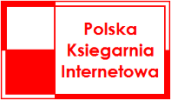Dostępny
Wysyłka w ciągu 3-4 dni roboczych.
Dostawa Deutche Post tylko 1.40€.
Szybki kurier do 30kg tylko - 4€!
(Sprawdź!)
Global satellite navigation systems – GPS, GLONASS, Compass, Galileo – bring the world and the outer space closer to us. Regardless of the weather, the time of day or night, satellite navigation allows us to determine the location of points and moving objects anywhere on the surface of the Earth, in the sky, and all over the universe. Each of us can get additional data related to their location, e.g. the address of the nearest hospital, petrol station, or restaurant. The emergency services may accurately locate the place from which the emergency call was made. Thanks to atomic clocks placed on navigation satellites, financial transactions and high-voltage networks can work effectively.
This publication aims to familiarize the reader with the issues related to satellite navigation, challenges and dilemmas faced by the world and the European Union in the space age.
The Authors:
Joanne Irene GABRYNOWICZ – Professor emerita, has taught space law since 1987 at the University of North Dakota and the University of Mississippi. She is an internationally recognized space law expert. In recognition of her work, the International Astronomical Union named an asteroid after her, (9002) Gabrynowicz = 1981 QV2.
Karol KARSKI – ML, MA, MBA, PhD, Dr. hab., DHC mult., is a Professor and the Head of the Department of Public International Law and the President of the Academic Council of the Institute of International Law, Faculty of Law and Administration, University of Warsaw.
Zbigniew KŁOS – PhD, Professor, Space Research Centre, Polish Academy of Sciences.
Zuzanna KULIŃSKA-KĘPA – PhD, assistant professor in the Department of International Air and Space Law, Institute of International Law, Faculty of Law and Administration, University of Warsaw. The main areas of research: human rights, space law.
Katarzyna MYSZONA-KOSTRZEWA – PhD, Professor, Institute of International Law, Faculty of Law and Administration, University of Warsaw; head of the Department of International Air and Space Law, head of the Post-Graduate Studies of International Law and Foreign Service, University of Warsaw; head of the Section of Space Law and Policy of the Space and Satellite Research Committee of the Polish Academy of Sciences. Fellow of the Queen Elisabeth II Scholarship and the Joseph Conrad Scholarship. The main areas of research: air and space law, international safety, law of the international organizations.
Barbara SKARDZIŃSKA – PhD, Department of International Air and Space Law, Institute of International Law, Faculty of Law and Administration, University of Warsaw. The main areas of research: space law, environmental law.
Książka Legal And Political Aspects of The Use of European Satellite Navigation Systems Galileo and EGNOS wysyłka Niemiecy od 1.40€. Wysyłka do Austrii i innych krajów - sprawdź na stronie "dostawa"
Skip to similar books
Skip to product details
Dane bibliograficzne / Bibliographische info
|
Rodzaj (nośnik) / Produkt-Typ
|
książka / Buch
|
|
Dział / Departement
|
Książki i czasopisma / Bücher und Zeitschriften
|
|
Autor / Author
|
Katarzyna Myszona-Kostrzewa
|
|
Redakcja / Editor
|
Myszona-Kostrzewa Katarzyna |
|
Tytuł / Titel
|
Legal And Political Aspects of The Use of European Satellite Navigation Systems Galileo and EGNOS |
|
Język / Sprache
|
angielski |
|
Wydawca / Herausgeber
|
Scholar |
|
Rok wydania / Erscheinungsjahr
|
2019 |
|
Rodzaj oprawy / Deckelform
|
Twarda |
|
Wymiary / Größe
|
15.5x22.0 |
|
Liczba stron / Seiten
|
154 |
|
Ciężar / Gewicht
|
0,316 kg |
| |
|
|
Wydano / Veröffentlicht am
|
2.08.2019 |
| ISBN |
9788373839588 (9788373839588)
|
| EAN/UPC |
9788373839588
|
|
Stan produktu / Zustand
|
Nowa książka - sprzedajemy wyłącznie nowe nieużywane książki. |
|
Osoba Odpowiedzialna / Verantwortliche Person
|
Osoba Odpowiedzialna / Verantwortliche Person
|
 Szybka wysyłka
Szybka wysyłka









